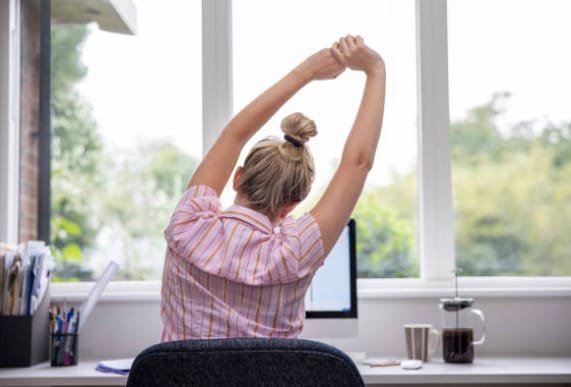How Does Isolation Affect The Human Brain
The Two Different Types
With the global pandemic happening in the world right now, many of us are thinking about how isolation can affect us. It’s a scary thing to think about even though we have been living with the new restrictions for almost two years now.
We believe that there’s a lot you can learn from a situation like this, however, which is why we decided to create this article series. In this first part here, we will explain the two types of isolation, and in the second one, we’ll shed some light on how you can deal with it in order to feel better!
Ready to learn something new? Let’s go!
Self-Isolation
The modern world is a noisy place.
We’re constantly bombarded with so much information and so many opinions that it can be overwhelming just to keep up with the day’s events. And in our efforts to avoid all the distractions and noise in life, we often find ourselves retreating into isolation instead of connecting with others.
Global Pandemic
We all know of the new restrictions most governments have placed on the public and why it is so essential to follow them. Physical distancing, quarantining, laws on traveling – all these things affect us in a certain way regardless of the fact that we understand why they’re important. If we take the first one, for example, we can understand a lot about how we as human beings feel.
We are social creatures, made to be in the company of others. Although people think that physical contact can be neglected if we are still allowed to talk to each other, this pandemic shows that’s not the case. The levels of anxiety and depression have jumped since this situation became global, and most psychologists believe that the lack of physical contact is one of the leading reasons.
Interestingly, people resort to self-isolation due to the fear of experiencing negative consequences from this modern-day plague.
The Research
With the current state of the world, research about the effects isolation has, is booming. Campaigns and seminars regarding the subject have been launched in Denmark, Australia, and the UK. They are organized both by the countries and volunteers.
Their aim is to raise awareness of the issue and to give some ideas on how to cope with similar states. A different research group is focused on how loneliness can affect our physical health. Thanks to many organized, professional studies, we now know that this feeling may even be more dangerous than obesity and similar conditions.
Self-isolation is also connected with higher risks of depression and dementia and can be detrimental to the development of kids and teenagers.
Interesting Facts
Loneliness can be a significant health risk – some doctors even compare it to smoking 15 cigarettes a day. Our immune system is also affected by how lonely we feel – we tend to have weaker antiviral responses and higher inflammation.
Our cognitive skills are also impaired – we find it harder to focus, string thoughts together, and articulate our ideas. When given different sorts of tests, most of us start struggling even with questions that seemed easy to us before.
Imposed Isolation
Yes, it’s true – In many cases, we will decide to isolate ourselves because, well, it feels right. Even though self-isolation is accompanied by feelings of loneliness, it is somehow soothing.
When it comes to the full manifestation of the side-effects of isolation however, there is nothing worse than imposed isolation.
Prisons
It’s no wonder that high confinement is a punishment in prisons. We use human contact not only to know more about the world and feel different emotions but to affirm our own sense of self. Many psychologists believe that inmates in super-maximum security conditions don’t lash out because they’re angry. They just need some sort of a reminder that they’re still human and violence is one surefire way to incite a reaction from the guards.
This is why imposed isolation is so scary – it removes your sense of identity and connection to the real world.
Research
Here we can talk about the notorious Stanford prison experiment. It took place in the university itself in 1971, and its goal was to show the effects such an environment has on young people.
The participants were students divided into either guards or prisoners, and the expected time for the project was two weeks. However, the experiment was forcefully stopped after six days due to the increasing brutality of the “guards” and the concerns of the parents. A different research was designed to take away senses completely.In it, some paid volunteers (mainly college students) were put in sound-proof cubicles with no human interaction and limited sensory stimulants.
They were given cotton gloves to reduce the sensation of touch, U-shaped pillows to reduce sound, and translucent visors to reduce vision. After just a few hours, the volunteers started feeling restless and then began to hallucinate. This experiment was also shorter than expected in order not to have any permanent damage on the participants.
Interesting Facts
Although this was not imposed isolation, a choice, the discoveries this trip led to are fascinating.In 1961 a geologist who was exploring an underground glacier in the Alps decided to stay there for two months. Because of the darkness and lack of time-measuring tools, his perception of time slowed down a lot.
When he got out, it took him 5 minutes to count to what he thought was 120 seconds. A different story about darkness and isolation shows that we also change our sleep cycles when under extreme conditions. In 1993 a sociologist spent 366 days in an underground cavern (he thought that it was merely 219 days), and his sleep cycle drastically shifted. He spent most of the time being awake for 36 hours and sleeping for 12.
Final Thoughts
For us, as people, our surrounding environment has an immense influence. There is definitely a lot we can learn about ourselves through the different situations we experience, and isolation is no different. Although it sounds like a negative thing at first, it is a source of knowledge for everyone, which is always good.
The following article of this two-part series discusses how to change your perspective regarding isolation into a more positive one. We also give some advice and ideas on what to do to keep yourself entertained in these trying times, so be sure to stay tuned with us for part two!
See you there!















